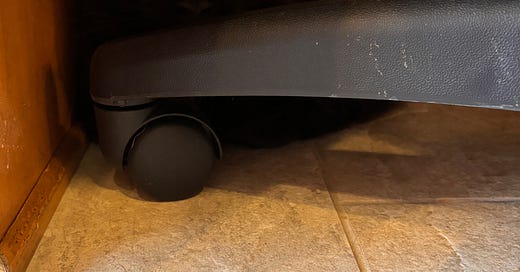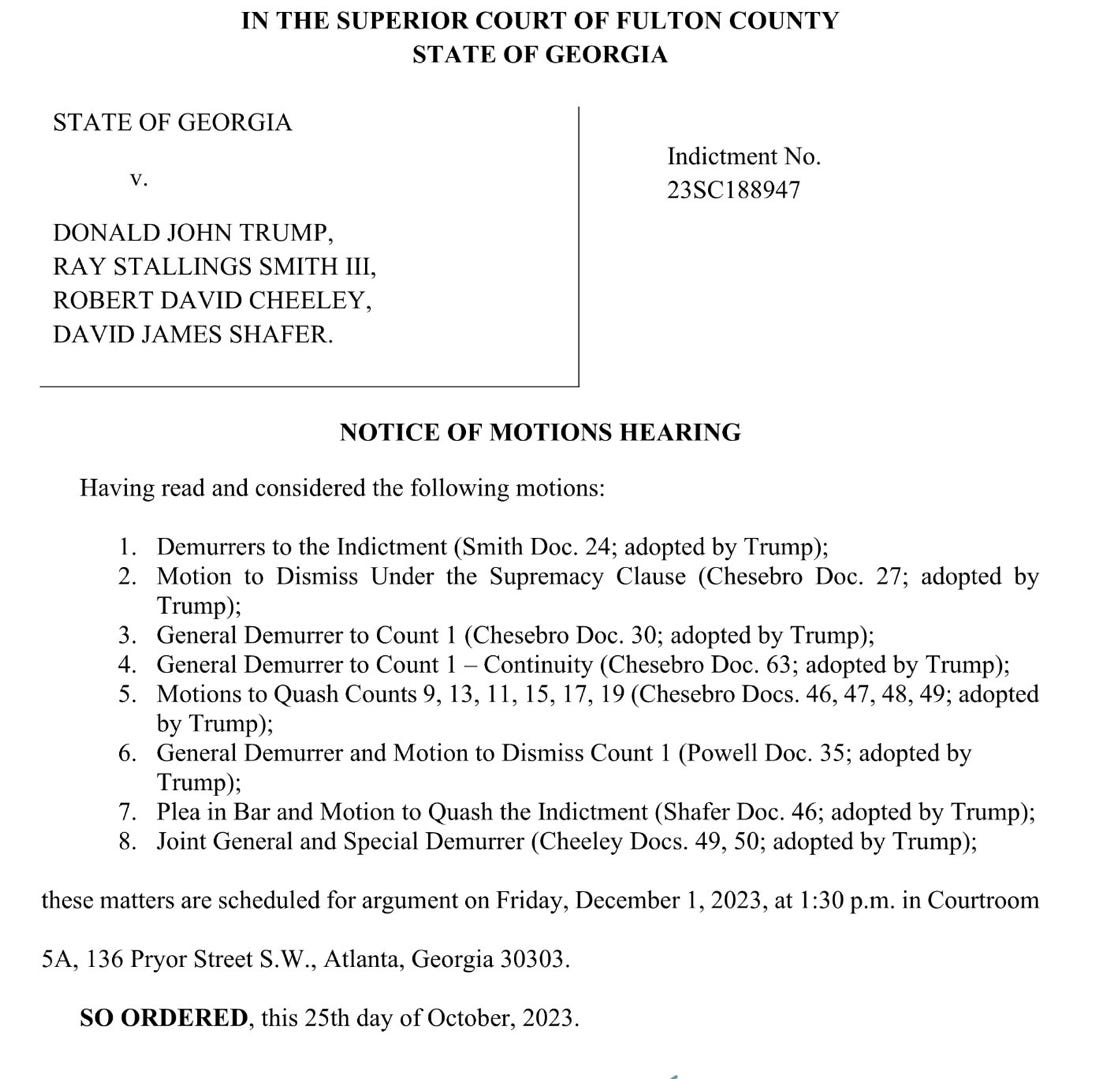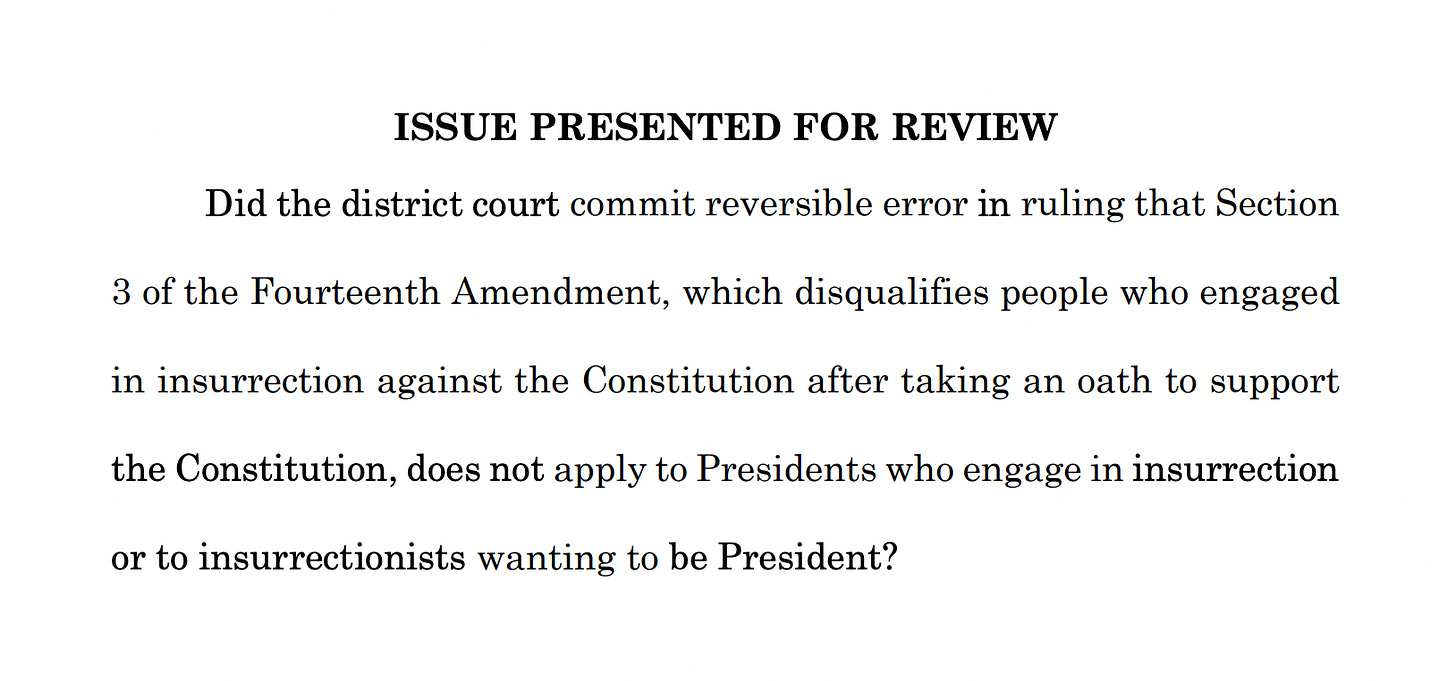Coming off of Thanksgiving, we’ve got a sleepier week, at least on paper, than what we’ve been experiencing for the last few months.
Of course, that’s always subject to change these days, especially with Trump gag order appeals in both New York and the District of Columbia in process. But the major event this week should take place on Friday, when Trump’s top lawyer in the Fulton County case, Steve Sadow, appears in court on behalf of the former president.
Judge McAfee scheduled the December 1 hearing to take up the many motions by defendant Trump, as well as some of his other remaining co-defendants, seeking to dismiss the charges against them.
The motions ask the Judge to dismiss the indictment for various reasons ranging from technical legal failures in the indictment to an alleged constitutional bar under the Supremacy Clause to prosecuting a former president and perhaps others working with him. Many of the motions being argued on Trump’s behalf this week were filed by Kenneth Chesebro and/or Sidney Powell, and “adopted” by Trump—a practice that allows a co-defendant to join in another’s motion without filing it (and having his lawyers do all the work necessary to get there) on his own.
Judge McAfee previously rejected some of the motions filed by Chesebro and Powell before they pled guilty, declining to accept their Supremacy Clause arguments and claims that the RICO charge was flawed. Although the Judge will consider the motion independently from Trump’s vantage point, and different defendants are situated in unique ways that can lead arguments to work better for some than for others, these motions primarily involve pure legal questions, and it’s unlikely their outcome will be any different for Trump.
We’ll also be watching to see whether the Judge will take up Fani Willis’ request for an August 2024 trial date. Sadow has asked to be heard on that request. With Judge Aileen Cannon in Florida showing signs of being less than committed to her May trial schedule, there might be some room for an earlier date in Georgia, which makes the timing of Willis’ request a little perplexing. The Mar-a-Lago case is straightforward, and it’s hard to imagine it taking more than several weeks at the outside to try. We may gain some insight Friday on when Judge McAfee wants to try his case.
In Colorado, the petitioners seeking to remove Trump from the ballot on 14th Amendment grounds filed an appeal last week with the Colorado Supreme Court. Their 67-page brief came after a surprising ruling from Judge Sarah Wallace found that there was sufficient evidence to believe Trump had participated in an insurrection, but she was not persuaded he was an “officer of the United States” as required for Section 3 to apply to him. The issue the petitioners are asking the Colorado Court to decide has been framed in this rather clever fashion:
Whether Trump is an insurrectionist president or an insurrectionist wanting to be president, the petitioners, who want to keep him off the ballot, take issue with the court’s finding that Section 3 would disqualify anyone else serving in government but that it does not apply to “insurrectionist former Presidents, nor to any insurrectionists running for President.” They object to the ruling, which sets the presidency alone above the reach of the law, arguing that to get to this result, “the district court had to find, counterintuitively, that the President is not an ‘officer of the United States,’ that the Presidency is not an ‘office under the United States,’ and that the Presidential oath to ‘preserve, protect, and defend’ the Constitution is not an oath to support the Constitution.”
With oral argument set for December 6, we can expect to see additional briefs come in soon. Trump’s lawyers will, of course, challenge the insurrection finding while arguing that the Judge was correct when she found he wasn’t a qualifying official.
In the Special Counsel’s D.C. case, Trump has a filing due on Monday in his ongoing battle with the government over how classified information should be handled in that case. Classified material isn’t expected to play a major role in this case like it does in the Mar-a-Lago case. Trump had asked for a longer extension for his Black Friday filing deadline, but Judge Chutkan only gave him until Monday.
For the appellate geeks among us, we’ll learn who the panel judges will be for Mark Meadows’ Eleventh Circuit appeal—if you can remember that far back—of a federal district judge in Atlanta’s decision refusing to grant Meadows’ motion to remove the Fulton County prosecution from state to federal court. That oral argument is set for Friday the 15th, and the composition of the panel that will hear the case becomes available on Tuesday.
The identity of panel judges is always a subject of intense interest to appellate lawyers, and especially in the Eleventh Circuit, where the information is typically available later than in other circuits. Despite intense interest these days over which president appointed a given judge and what we can divine about their politics from that, this isn’t the reason the identity of the panel judges is interesting. It has far more to do with their jurisprudence—their legal views—and what can be gleaned about their leanings in case from their past decisions. The identity of the panel can inform strategy at appellate argument.
This appeal may also prove interesting for those still trying to read the tea leaves about Mark Meadows’ status in the case. Earlier rumors he might cooperate in Fulton County haven’t come to pass so far. He hasn’t pled guilty and is still a Trump co-defendant. But there is speculation, based on an ABC report last month, that Meadows is cooperating with Jack Smith in the D.C. prosecution.
As we’ve discussed previously, it’s hard to figure out what the benefit is of cooperating in one case, which would require Meadows to acknowledge his conduct (and, at least implicitly, his guilt, if he’s going to be of much value) when he still faces trial in another. Will we learn more? A plea from Meadows if this appeal is a failure could be a real coup for Fani Willis.
Finally, you’ll recall that we took a look at the friendly Univision interview of Trump and his efforts to pivot to secure Hispanic voters’ support. Now, an anchor for the network has pushed back in his weekly column. Jorge Ramos’ column is titled, “The Danger of Not Confronting Trump.” While chastising his network for its failure to confront Trump, saying it was necessary for reasons including “good journalism,” he wrote: “We cannot normalize behavior that threatens democracy and the Hispanic community, or offer Trump an open microphone to broadcast his falsehoods and conspiracy theories. We must question and fact-check everything he says.” It’s an excellent and timely piece, and I encourage you to take a look and share it with friends and family, because these words are thought provoking for all of us.
We’re in this together,
Joyce









It seems that we need better guardrails for those who want to sit in the oval office. If anyone has ever demonstrated the danger of leaving the requirements wide open, it is Trump. It will be interesting to see if participation in or support of an insurrection becomes a limitation.
I can’t help but wonder, Joyce, if the proverbial carrot that Jack Smith was dangling in front of Mark Meadows face has been snatched back. His case is something of a question like “Will he or Wouldn’t he?”.
I read Jorge Ramos’ column yesterday about Trump’s too friendly interview with Univision. Ramos has been around a long time and he knows when this party is lying to Hispanics. He is desperately pleasing with them not to pay attention to the lies by reminding them it was Trump and Stephen Miller who separated families and kidnapped their children. The fact that this is yet another case where Jared Kushner is involved, makes my neck hairs stand straight out!